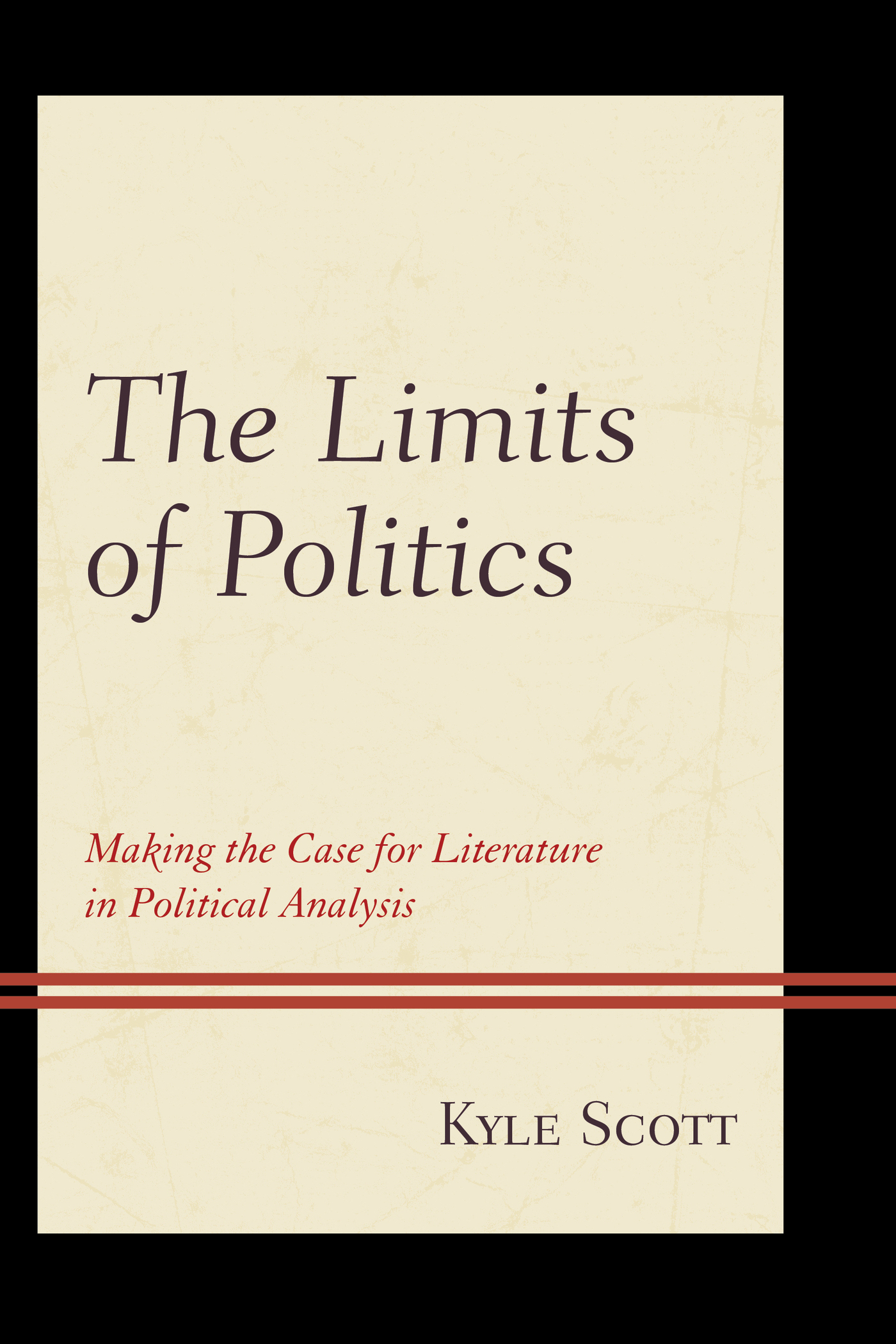The Limits of Politics
Politics, Literature, & Film
Series Editor
Lee Trepanier, Saginaw Valley State University
The Politics, Literature, & Film series is an interdisciplinary examination of the intersection of politics with literature and/or film. The series is receptive to works that use a variety of methodological approaches, focus on any period from antiquity to the present, and situate their analysis in national, comparative, or global contexts. Politics, Literature, & Film seeks to be truly interdisciplinary by including authors from all the social sciences and humanities, such as political science, sociology, psychology, literature, philosophy, history, religious studies, and law. The series is open to both American and non-American literature and film. By putting forth bold and innovative ideas that appeal to a broad range of interests, the series aims to enrich our conversations about literature, film, and their relationship to politics.
Advisory Board
Richard Avaramenko, University of WisconsinMadison
Timothy Burns, Baylor University
Paul A. Cantor, University of Virginia
Joshua Foa Dienstag, University of California at Los Angeles
Lilly Goren, Carroll University
Catherine Heldt Zuckert, University of Notre Dame
Recent Titles
The Limits of Politics: Making the Case for Literature in Political Analysis, by Kyle Scott
Shakespeare between Machiavelli and Hobbes: Dead Body Politics, by Andrew Moore
Mad Men: The Death and Redemption of American Democracy, edited by Sara MacDonald and Andrew Moore
The Limits of Politics
Making the Case for Literature
in Political Analysis
Kyle Scott
LEXINGTON BOOKS
Lanham Boulder New York London
Published by Lexington Books
An imprint of The Rowman & Littlefield Publishing Group, Inc.
4501 Forbes Boulevard, Suite 200, Lanham, Maryland 20706
www.rowman.com
Unit A, Whitacre Mews, 26-34 Stannary Street, London SE11 4AB
Copyright 2016 by Lexington Books
All rights reserved. No part of this book may be reproduced in any form or by any electronic or mechanical means, including information storage and retrieval systems, without written permission from the publisher, except by a reviewer who may quote passages in a review.
British Library Cataloguing in Publication Information Available
Library of Congress Cataloging-in-Publication Data
Names: Scott, Kyle, 1977- author.
Title: The limits of politics : making the case for literature in political analysis / Kyle Scott.
Description: Lanham, Maryland : Lexington Books, 2016. | Series: Politics, literature, and film | Includes bibliographical references and index.
Identifiers: LCCN 2016030806 (print) | LCCN 2016038623 (ebook) | ISBN 9781498503372 (cloth : alk. paper) | ISBN 9781498503389 (Electronic)
Subjects: LCSH: Political science--Philosophy. | Politics and literature. | Political ethics.
Classification: LCC JA71 .S324 2016 (print) | LCC JA71 (ebook) | DD 320.01--dc23
LC record available at https://lccn.loc.gov/2016030806
 TM The paper used in this publication meets the minimum requirements of American National Standard for Information Sciences Permanence of Paper for Printed Library Materials, ANSI/NISO Z39.48-1992.
TM The paper used in this publication meets the minimum requirements of American National Standard for Information Sciences Permanence of Paper for Printed Library Materials, ANSI/NISO Z39.48-1992.
Printed in the United States of America
Acknowledgments
This is my fifth book and hopefully not my last. Each of my previous four has been the result of some issue that I could not ignore regardless of how hard I tried. This one is no different. Like the previous four this one is also an incomplete explanation of my political philosophy but in building on the others it helps bring into focus an argument that I hope will be complete before I am no longer able to write.
This book has been shaped by the teachings of the late Ross M. Lence. While his influence here is less explicit than in previous projects of mine, those who knew the Good Doctor I hope will find flashes of his brilliant insights here no matter how unbrilliantly they are presented. There would be no higher compliment than for one of his former colleagues or students to recognize through this work his influence on me.
I would also like to thank Lee Trepanier, the Series Editor, for giving me the opportunity to work on this project for Lexington Books and for the previous editor at Lexington, Justin Race, who gave approval to the project and the Politics, Literature, and Film Series. Joseph Parry picked up where Justin left off and has seen this project through to the end. This is our third project together and I could not be happier. Thank you all for the opportunity.
There were a few establishments that offered research and writing space during this project: Fondren Library at Rice University, Anderson Library at the University of Houston, the Lone Star College System, and Blackwalnut Caf. Thanks for letting me work in peace and providing the research support I requested.
Finally, I would like to thank my family: Bethany, Brady, and Berkeley. They are patient, supportive, kind, and all the things I wish I were more of. It is my hope that my books can be a humanizing force in an otherwise cold world so that my family can live in a world that is just a little bit better than it is now. I hope that my dedication to a cause will be an example for my children that when they believe in something they keep after it even if it seems like it is not making a difference. The message I have for my children is this: When you care about something, and you work to make it happen, something happens to you that is more important than the impact it has on others. My thoughts and my words are all I have to give you; I wish I had better thoughts and better words so you could have something better. Ill keep trying to do better and expect you to do the same. I love you all.
Introduction
Where there is no vision, the people perish. (Proverbs 29:18)
Human nature encompasses both the rational and the emotional. Modern political science has segregated these two concepts while promoting the supremacy of rationalism. This manner of study reduces the multidimensionality of humans which further reduces how we view and address problems through political means. To the attentive reader this book will demonstrate how the incorporation of literature can inform our understanding of politics and guard against the scientific positivism that pervades much of our current political study. Political science resides at the intersection of the social sciences and the humanities as it requires access to both types of wisdom. To engage in a debate over political matters one must engage both logos and pathos.
The segmentation of academia, and the rift between the social sciences and fine arts in particular, has caused political science to lose the insights offered by literature and the arts. For those concerned with normative aspects of politics, literature is irreplaceable for its ability to focus our attention on the qualitative variations and normative aspects of human interaction more than conventional political science inquiry encourages. True civilization implies a mixture of developed understanding and reflection with a full capacity to perceive, one must both see things as they are and react to them appropriately. Texts and images must go together as a natural unity (Bloom 1981, 26). Politics is dependent upon images and myth. No less than Plato understood the importance of using imagery to engage the imagination to capture the distinction between right and wrong in an attempt to shape those who would in turn shape the political order.

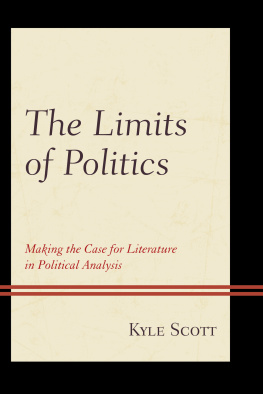
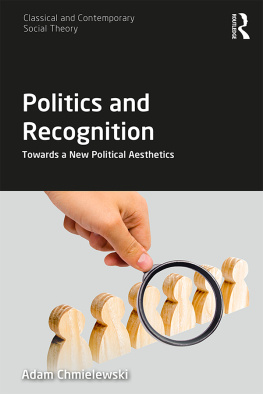
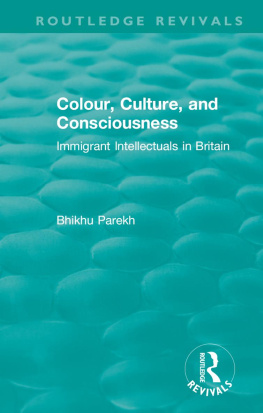

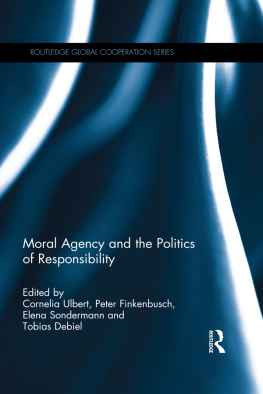
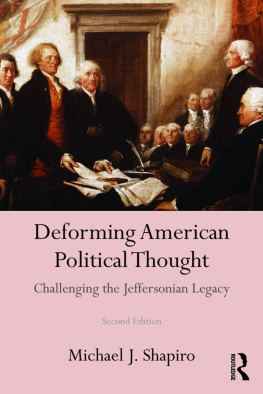
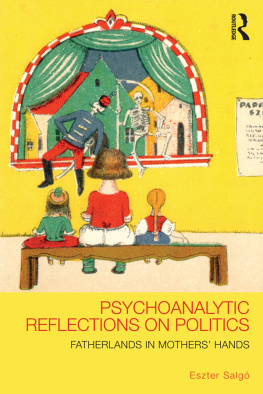
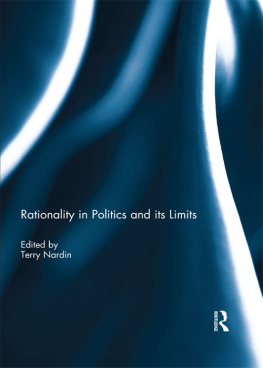
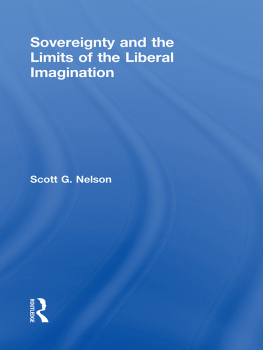
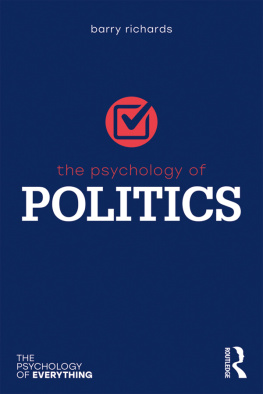
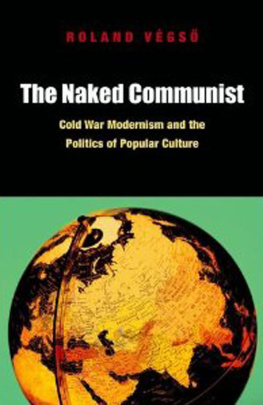
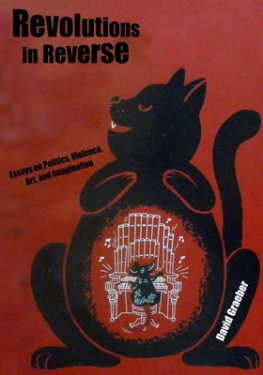
 TM The paper used in this publication meets the minimum requirements of American National Standard for Information Sciences Permanence of Paper for Printed Library Materials, ANSI/NISO Z39.48-1992.
TM The paper used in this publication meets the minimum requirements of American National Standard for Information Sciences Permanence of Paper for Printed Library Materials, ANSI/NISO Z39.48-1992.